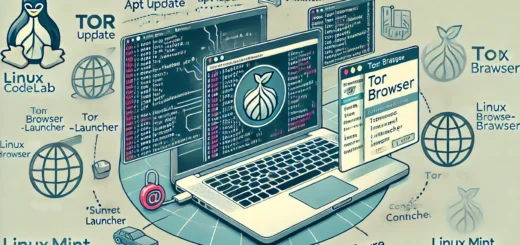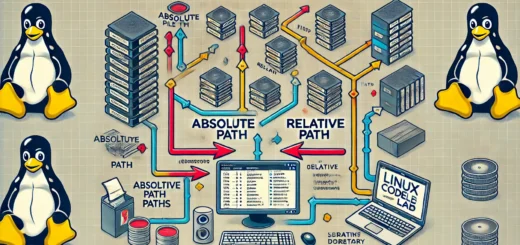What Are Scripts? Exploring Their Role and Uses in Technology

In the realm of computing, programming, and multimedia, the term “script” holds a significant place. A script, in its simplest form, is a set of instructions or code that is executed by a specific interpreter or software environment. These scripts are utilized to automate tasks, control hardware, manage software environments, and even create entire interactive experiences. This article delves into what a script is, the various types of scripts, and their wide-ranging applications across different domains.
Understanding Scripts
A script is essentially a text file that contains a series of commands or instructions. These commands are written in a scripting language, which is a type of programming language designed for integrating and communicating with other programming languages. Unlike compiled languages like C++ or Java, which require code to be converted into machine language by a compiler before execution, scripts are usually interpreted. This means they are read and executed line-by-line by an interpreter, which makes them more flexible and easier to modify.
The flexibility of scripts allows them to be used for a wide variety of tasks, from simple file management to complex automation processes. Scripts can be as short as a single line or as long as thousands of lines, depending on the complexity of the task they are designed to perform.
Types of Scripts
Scripts come in various forms, depending on their purpose and the environment they operate in. Here are some of the most common types:
- Shell Scripts: Shell scripts are used in Unix-based operating systems, like Linux and macOS. These scripts are written for command-line interpreters, commonly known as shells (e.g., Bash, Zsh). Shell scripts can automate repetitive tasks, manage system operations, and even control other software applications. For example, a shell script might automate the process of backing up files from one directory to another.
- Batch Scripts: Batch scripts are similar to shell scripts but are designed for Windows operating systems. These scripts, typically saved with a
.bator.cmdfile extension, can execute commands in sequence within the Windows Command Prompt. Batch scripts are often used to automate routine tasks like starting applications, managing files, and configuring system settings. - Python Scripts: Python is a versatile programming language that is widely used for scripting. Python scripts can automate tasks, analyze data, interact with web services, and more. Due to Python’s simplicity and readability, it is a popular choice for both beginners and experienced programmers.
- JavaScript: JavaScript is a scripting language commonly used in web development. Unlike the previously mentioned scripts that are executed on a local machine, JavaScript is usually executed within a web browser. It is used to create dynamic and interactive web pages by manipulating the Document Object Model (DOM), handling events, and communicating with servers.
- PowerShell Scripts: PowerShell is a task automation framework from Microsoft, consisting of a command-line shell and scripting language. PowerShell scripts are used primarily for automating administrative tasks on Windows operating systems, such as managing user accounts, configuring networks, and deploying software.
- VBScript and JScript: VBScript (Visual Basic Script) and JScript (a variant of JavaScript) are scripting languages used primarily in Windows environments. They are often used for client-side scripting in Internet Explorer or for automating tasks within the Windows environment.
- SQL Scripts: SQL (Structured Query Language) scripts are used to manage and manipulate databases. These scripts can perform operations like querying data, updating records, and managing database structures. SQL scripts are crucial in environments where large amounts of data need to be handled efficiently.
- PHP Scripts: PHP is a server-side scripting language used mainly for web development. PHP scripts are executed on a server and can generate dynamic web content, manage databases, and handle user input.
- Lua Scripts: Lua is a lightweight scripting language commonly used for embedded systems and game development. Lua scripts are known for their fast execution and are often used to control the behavior of video game characters, manage game logic, and handle other real-time operations.
The Use Cases of Scripts
Scripts are employed across various industries and domains due to their versatility and efficiency. Here are some key areas where scripts are heavily utilized:
- Automation: One of the most significant uses of scripts is automation. Scripts can automate repetitive tasks, reducing the need for manual intervention and minimizing errors. For example, a system administrator might use a script to automate the process of deploying software updates across multiple machines.
- Web Development: Scripts play a vital role in web development, particularly JavaScript and PHP scripts. JavaScript scripts are used to create dynamic and interactive elements on web pages, such as forms, sliders, and navigation menus. PHP scripts, on the other hand, are used on the server side to generate content dynamically, manage user sessions, and interact with databases.
- Data Analysis: In the field of data science, scripts, especially Python scripts, are used to automate data collection, processing, and analysis. Python scripts can fetch data from APIs, clean and preprocess data, and perform complex analyses using libraries like pandas and NumPy.
- Game Development: Scripts are extensively used in game development for managing game logic, character behavior, and event handling. Lua scripts, for instance, are often used in games to control the actions of non-player characters (NPCs), manage game states, and handle user inputs.
- System Administration: System administrators use scripts to manage and maintain computer systems. Tasks like managing user accounts, configuring network settings, and performing system backups can be automated using scripts. For instance, a PowerShell script might be used to create user accounts across multiple machines in a network.
- Software Development: Scripts are used in software development for automating build processes, testing, and deployment. For example, a shell script might compile code, run tests, and deploy the application to a server, all with a single command.
- Database Management: SQL scripts are essential for managing databases. They can automate tasks like data extraction, transformation, and loading (ETL), as well as data migration and backup. SQL scripts are also used to define and manipulate the database schema.
- Network Management: Network administrators use scripts to automate the configuration and management of network devices. Scripts can configure routers, manage firewalls, and monitor network traffic, helping to maintain network security and efficiency.
- Multimedia Production: In multimedia production, scripts are used to automate the rendering and processing of audio, video, and images. For example, a script might be used to batch process a set of images, applying filters and resizing them automatically.
- Security: Scripts are also used in cybersecurity to automate security audits, vulnerability scans, and incident response. For instance, a script might scan a network for open ports and report any potential vulnerabilities.
Advantages of Using Scripts
The use of scripts offers several advantages across various domains:
- Efficiency: Scripts can execute repetitive tasks much faster than manual processes, saving time and reducing the risk of human error.
- Flexibility: Scripts can be easily modified and customized to meet specific requirements. This flexibility makes them ideal for automating tasks that might vary slightly from one instance to another.
- Cost-Effective: Automating tasks with scripts can reduce labor costs by minimizing the need for manual intervention. Scripts can also be reused across different projects, further reducing development costs.
- Scalability: Scripts can be used to manage large-scale operations, such as deploying software across thousands of machines or processing large datasets, making them highly scalable.
- Integration: Scripts can integrate different software applications and systems, allowing them to work together seamlessly. For example, a script might automate data transfer between a database and a web application.
Challenges and Limitations
Despite their numerous advantages, scripts also come with certain challenges and limitations:
- Debugging: Debugging scripts can be challenging, especially in larger scripts with complex logic. Errors in scripts can lead to unexpected behaviors or system crashes.
- Security Risks: Scripts can pose security risks if not properly secured. Malicious scripts can be used to exploit vulnerabilities, leading to data breaches or system compromises.
- Performance: Scripts, especially interpreted ones, can be slower than compiled programs because they are executed line-by-line. For performance-critical applications, this can be a limitation.
- Complexity: As scripts grow in complexity, they can become difficult to maintain and understand, especially if they are not well-documented.
- Dependency on Interpreter: Scripts require specific interpreters to run, which can lead to compatibility issues if the interpreter is not available on a particular system.
Conclusion
Scripts are an integral part of modern computing, offering a flexible, efficient, and cost-effective means of automating tasks, managing systems, and creating interactive experiences. Whether in web development, system administration, or game development, scripts play a crucial role in streamlining processes and enhancing productivity. However, like any tool, they come with their own set of challenges that must be managed carefully to fully harness their potential. As technology continues to evolve, the use and development of scripts will remain a fundamental skill in the toolkit of developers, administrators, and technologists alike.
Thank you for reading the article! If you found the information useful, you can donate using the buttons below:
Donate ☕️ with PayPalDonate 💳 with Revolut






















